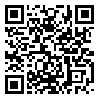BibTeX | RIS | EndNote | Medlars | ProCite | Reference Manager | RefWorks
Send citation to:
URL: http://hakim.tums.ac.ir/article-1-1448-en.html

 1, Rastgari Mehr B
1, Rastgari Mehr B 
 , Moradi Kohngi Z
, Moradi Kohngi Z 
 , Karimi Gartamani A
, Karimi Gartamani A 
 , Shafieyan Z
, Shafieyan Z 
 , Rezapoor A
, Rezapoor A 
 , Ansari H
, Ansari H 
 , Asayesh H
, Asayesh H 
 , Qorbani M
, Qorbani M 

Mansourian M1 (PhD), Rastgari Mehr B2 (MSc), Moradi Kohngi Z3 (MSc Student), Karimi Gartamani A3 (MSc Student), Shafieyan Z3(DVM), Rezapoor A4(PhD), Ansari H5(MSc), Asayesh H6 (MSc), Qorbani M7 * (PhD)
1 Public Health Department, Ilam University of Medical Sciences, Ilam, Iran
2 Public Health Department, School of Medical Sciences, Abadan, Iran
3 Student Research Committee, Ilam University of Medical Science, Ilam, Iran
4 Department of Health Economics, School of Health Management and Information Sciences and Health Management and Economics Research Center, Iran University of Medical Sciences,Tehran, Iran
5 Health Promotion Research Center, Department of Epidemiology and Biostatistics,
Zahedan University of Medical Sciences, Zahedan, Iran
6 Department of Medical emergencies, Paramedical Faculty, Qom University of Medical Sciences, Qom, Iran
7 Department of Community Medicine ,School of Medicin e, Alborz University of Medical Sciences, Karaj, Iran Non-Communicable Diseases Research Center, Endocrinology and Metabolism Population Sciences Institute,
Tehran University of Medical Sciences, Tehran, Iran
Original Article
Received: 25 Oct 2014, Accepted: 29 Dec 2014
Abstract
Introduction: The health sciences studies can be beneficent to the community health when the results can appropriately be disseminated among stakeholders. The aim of this study was to assess the knowledge transfer and exchange (KTE) state among approved research projects at Ilam University of Medical Sciences (IUMS) in 2008-2012.
Methods: This study was a cross-sectional study in which 135 research projects of Ilam University of Medical Sciences were studied during 2008 to 2012. Data were gathered via a checklist. Data of 100 projects could be retrieved and analyzed using the descriptive statistics and ANOVA test in the SPSS.
Results: Among the studied projects, 74 projects (74%) were applied research, 24 projects were basic research and two projects were applied-basic projects. Most of the projects (n=63 63%) had a cross-sectional design and 13 projects (13%) were intervention studies. Only 2 (2%) projects were related to other projects of the researchers. Only 3% of the projects had been collaborated with other research organizations which shared only 0 . 12% of the proposal budgets. Active KTE score of the IUMS researchers was 6±2.4 out of 28 and score of the passive KTE including publishing and presentation of the results in national and international scientific seminars was 9±2.6 out of 28.
Conclusion: According to the results, it seems that the format of the IUMS proposals should be revised in order to add project audiences in proposals and research messages in final reports. Policies for faculty promotion should be revised and funds should be attracted from other research organizations to improve KTE at the IUMS.
Keywords: knowledge exchange, research, active knowledge transfer, passive knowledge transfer
Please cite this article as follows:
Mansourian M, RastgariMehr B, MoradiKohngi Z, KarimiGartamani A, Shafieyan Z, Rezapoor A, et al. Knowledge Translation and Exchange in Research Projects at Ilam University of Medical Sciences, 2008-2012. Hakim Health Sys Res 2015 17(4): 343- 349.
* Corresponding Author: Department of Community Medicine, School of Medicine, Alborz University of Medical Sciences, Karaj, Iran Communicable Diseases Research Center, Endocrinology and Metabolism Population Sciences Institute, Tehran University of Medical Sciences, Tehran, Iran . Tel: +98-26 - 32819266, Fax: +98- 26 - 32819276 . E-mail:mqorbani1379@yahoo.com
Received: 2015/08/17 | Accepted: 2015/08/17 | Published: 2015/08/17
| Rights and permissions | |
 |
This work is licensed under a Creative Commons Attribution-NonCommercial 4.0 International License. |



